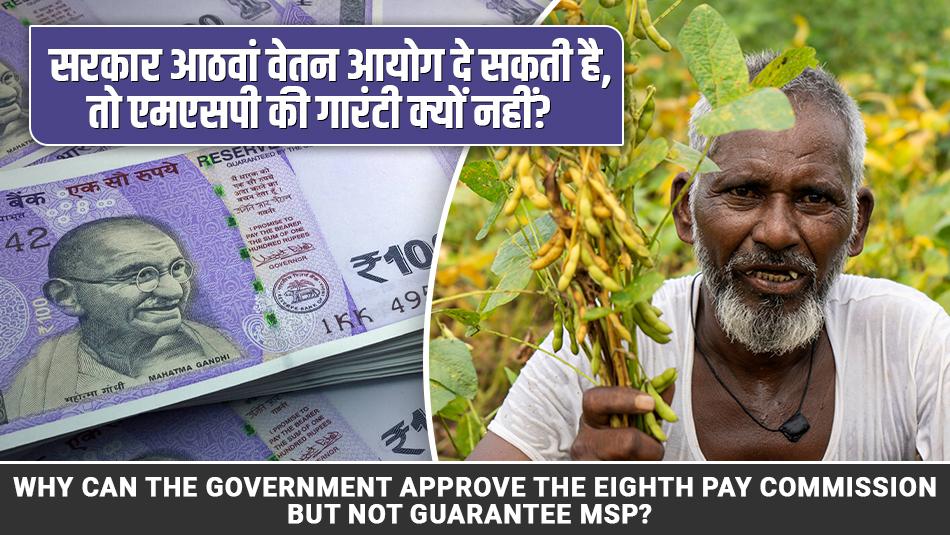
The disparity between the income growth of farmers and government employees has become a topic of heated debate. Agricultural economist Devinder Sharma discussed this issue in detail during a live session on Kisan Tak, shedding light on the glaring inequalities and the urgent need for policy changes.
For decades, farmers across the country have been demanding a legal guarantee for Minimum Support Price (MSP). In states like Punjab and Haryana, the protest over MSP legislation has now surpassed 11 months. This demand holds a place of prominence among the 12 key issues raised by the farmers.
While the government remains unresponsive to these demands, it has approved the Eighth Pay Commission for government employees. This raises a pertinent question: if resources are available for increasing salaries, why not for safeguarding farmers' livelihoods through MSP guarantees?
Devinder Sharma highlighted the stark differences in income growth between farmers and government employees over the last 45 years:
This comparison reveals the economic neglect faced by the farming community in contrast to the prioritization of government employees.
Despite 53 days of hunger strike by senior farmer leader Jagjit Singh Dallewal, the government has made no significant effort to initiate dialogue. According to official statistics, India has over 14 crore farmers, with 88% owning less than one hectare of land. Yet, their demands continue to be sidelined.
Rising Farmer Suicides: Sharma pointed out that if government employees faced challenges similar to those of farmers, resignations and suicides would likely become rampant. Unfortunately, India’s current economic policies seem tailored to keep agriculture struggling, depriving farmers of support while fostering growth in other sectors.
Income Inequality: A Harsh Reality: The Eighth Pay Commission, a government peon’s salary is set to increase from ₹18,000 to ₹46,000. Meanwhile, the average monthly income of an agricultural household remains at just ₹10,218. This stark disparity underscores the urgent need for policies aimed at increasing farmers’ incomes.
The Fitness Factor: A Model for Farmers: Government employees benefit from a fitness factor, which ensures consistent income growth. Applying a similar framework to farmers could significantly improve their financial stability and make them self-reliant.
A Call for Equitable Economic Policies: Devinder Sharma emphasized that it’s time for the government to redefine its priorities. Guaranteeing MSP through legislation would be a critical step in recognizing agriculture’s contribution to the nation’s economy.
Farmers’ demand for MSP is not just about better prices but about ensuring their economic security. If the government can allocate funds for salary hikes under the Eighth Pay Commission, it can also prioritize the welfare of the agricultural sector by guaranteeing MSP.
Addressing this disparity is essential for bridging the economic divide and ensuring sustainable growth for the country. Without strengthening the backbone of the economy—its farmers India’s progress will remain incomplete.
Latest Update